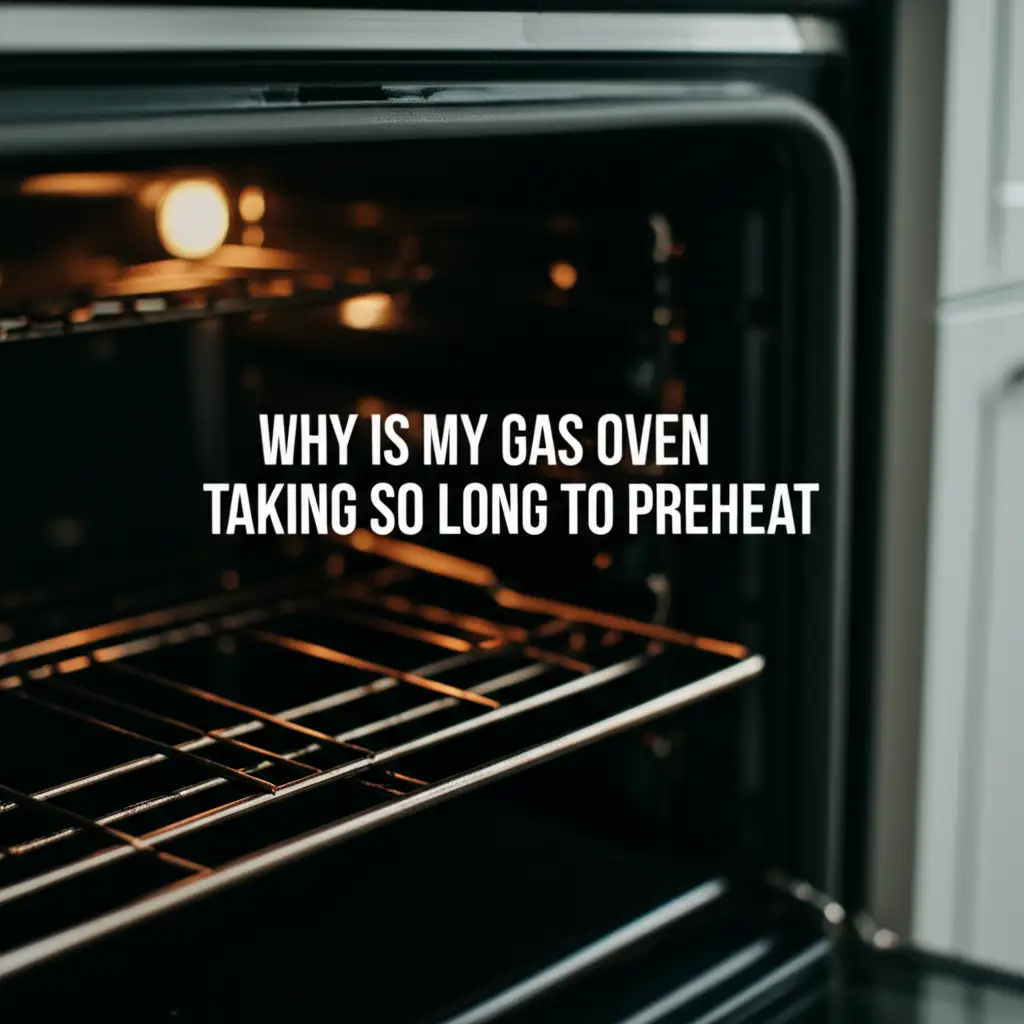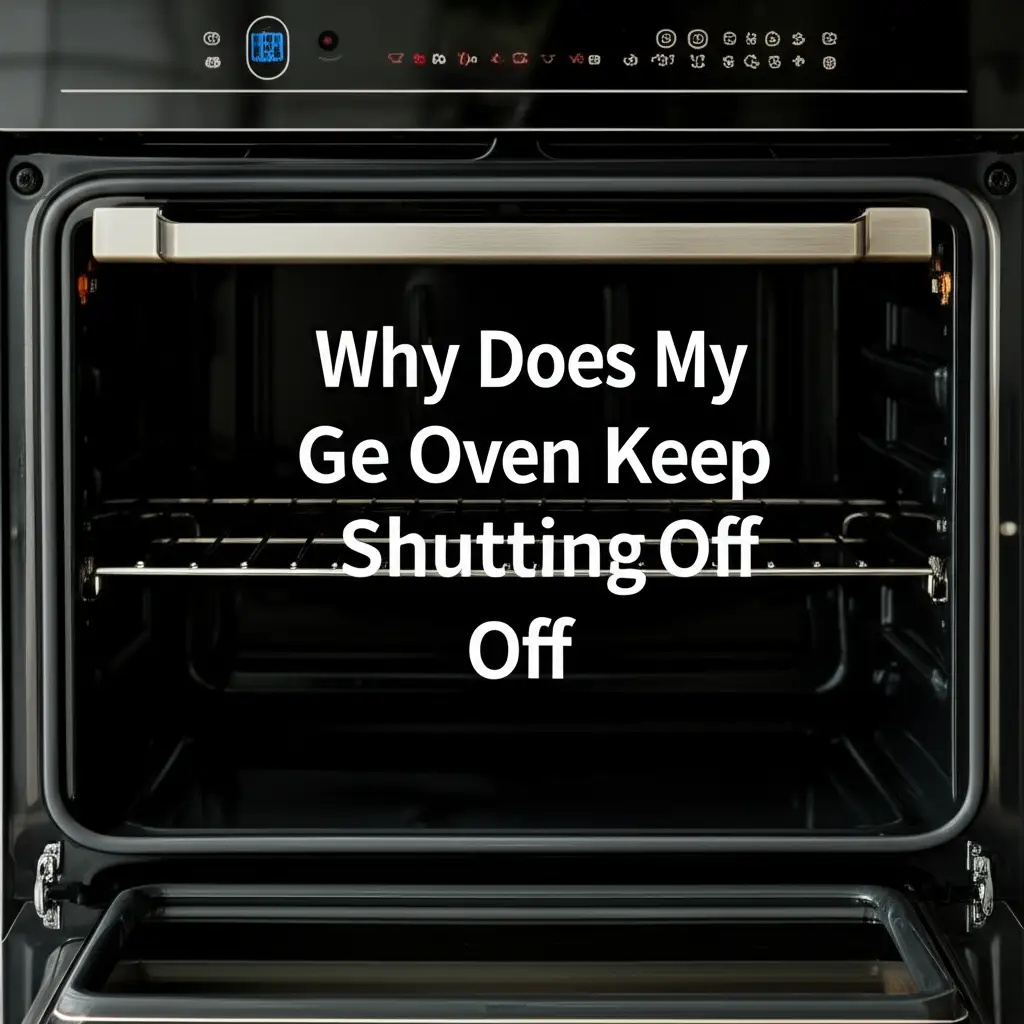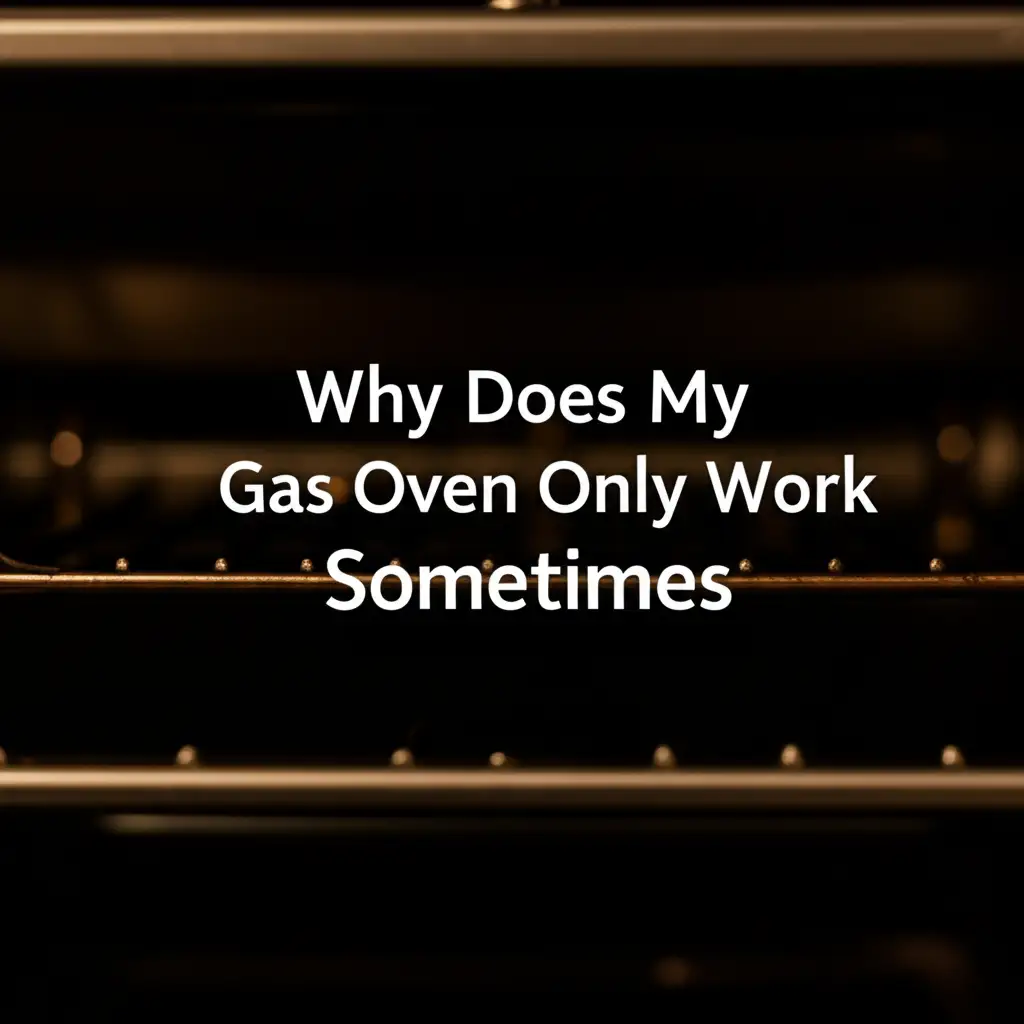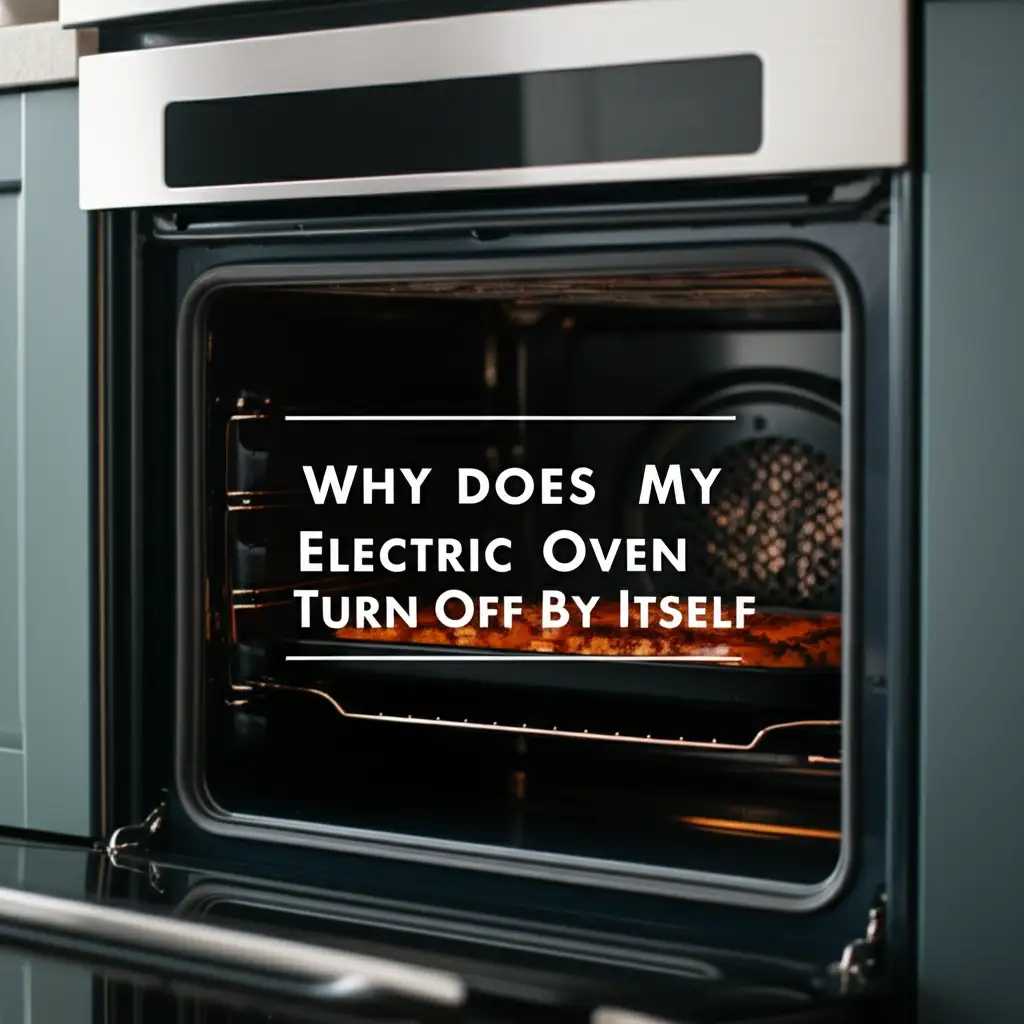· Todd Martin · Home Appliances · 15 min read
Why Does My Whirlpool Oven Smell Like Gas
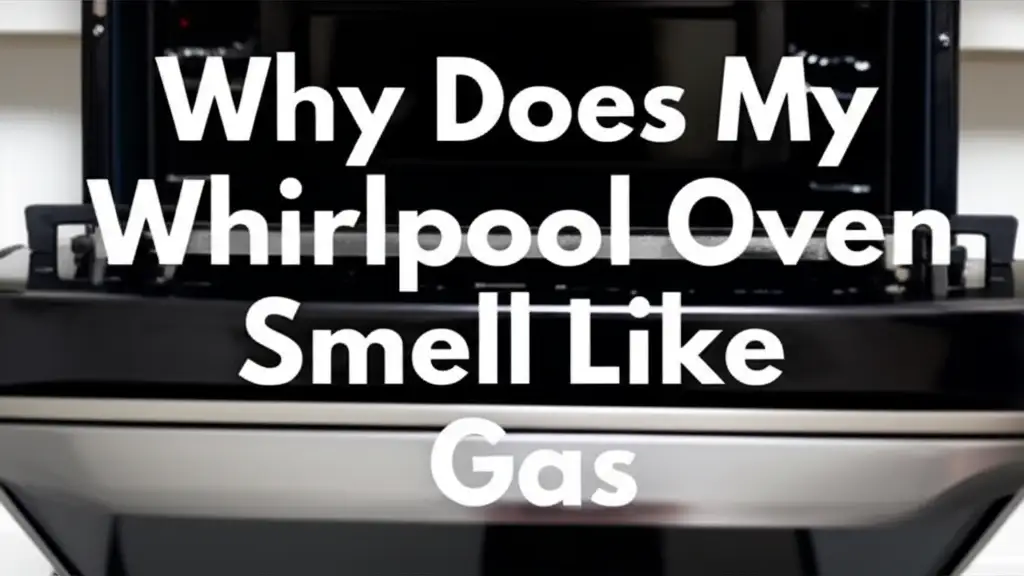
Why Does My Whirlpool Oven Smell Like Gas? Safety First!
Discovering a gas smell from your Whirlpool oven can be concerning. Many homeowners experience this issue. It is important to know if the smell signals a normal occurrence or a serious problem. Understanding the cause helps you act properly. This article explores common reasons why your Whirlpool oven smells like gas. We will cover routine situations, common malfunctions, and serious safety concerns. You will learn immediate steps to take and how to prevent future issues. Prioritizing safety is key when dealing with gas appliances. Let’s explore what to do when your oven emits that distinct odor.
Takeaway:
When your Whirlpool oven smells like gas, take these steps:
- Evaluate Safety: Determine if the smell is normal or a leak.
- Ventilate: Open windows and doors immediately.
- Avoid Ignition: Do not use electrical switches.
- Inspect: Check for new oven smell or residue.
- Call for Help: Contact a professional technician or your gas company if the smell persists or is strong.
My Whirlpool oven smells like gas due to normal operation, a dirty interior, or an issue with the gas igniter, gas valve, or gas line connection. Prompt action is important if the smell is strong or persistent.
Understanding the Smell: When is a Gas Odor Normal?
A gas smell from your Whirlpool oven does not always mean a leak. Sometimes, it is a normal part of how the appliance works. Understanding these normal situations helps reduce worry. It also helps you identify when a problem truly exists. Recognize these common, non-threatening reasons for a gas odor.
New Oven Break-In Period
You might notice a gas smell with a new Whirlpool oven. This is often normal during its first few uses. New ovens have protective coatings and manufacturing residues. These materials burn off when the oven heats up. This process releases a temporary odor. It usually lasts for the first few cycles.
To handle this, run your new oven empty for 30 minutes at a high temperature. Open windows to ventilate your home during this time. The smell should lessen with each use. If the smell persists after several uses, you should investigate further. This initial burning off is part of the oven’s break-in.
Initial Use After Self-Clean Cycle
After running a self-clean cycle, your oven might smell like gas. This is also a common occurrence. The self-clean cycle uses very high temperatures to burn off food spills. This intense heat can sometimes cause a residual smell. It relates to the burning of remaining debris.
Small amounts of gas may not ignite immediately during re-ignition. This can also happen after self-cleaning. Always ensure your kitchen is well-ventilated after using the self-clean feature. This helps dissipate any lingering odors. If you notice your gas oven smells like burning plastic after a self-clean, it could be residual debris. Read more about why your gas oven smells like burning plastic. Proper ventilation will clear the air quickly.
Pilot Light Ignition (Older Models)
Some older Whirlpool oven models use a pilot light. This small, continuous flame ignites the main burners. When the pilot light goes out, gas flows without igniting. You will smell gas. When the pilot light relights, it ignites the accumulated gas. This creates a brief but noticeable gas smell.
This is a normal part of the ignition process. However, a pilot light that frequently goes out indicates a problem. Check your owner’s manual for instructions on relighting the pilot. If it keeps going out, a technician should inspect it. Modern ovens use electronic igniters instead of pilot lights. This reduces the chance of unburnt gas.
Common Reasons Your Whirlpool Oven Smells Like Gas (And What to Do)
Beyond normal operation, a distinct gas smell often signals a problem. These issues typically involve components of your oven’s gas system. Identifying the source helps you decide on the right action. Some problems require professional help, others are minor fixes.
Igniter Issues
The igniter is a critical part of a gas oven. It heats up to ignite the gas flowing to the burners. A faulty igniter can cause a gas smell. If the igniter is weak, it may not get hot enough quickly. This causes gas to accumulate before ignition. You smell unburnt gas during this delay.
A healthy igniter glows bright orange. A weak igniter may glow dull red. If you hear multiple clicking sounds before ignition, it can also point to a weak igniter. This indicates it struggles to ignite the gas. Replacing a faulty igniter usually solves this problem. This is a common repair.
Gas Valve Malfunction
The gas valve controls the flow of gas to the oven. If this valve malfunctions, it can leak gas. A faulty gas valve can either stick open or not close properly. This allows gas to escape even when the oven is off. You might smell gas constantly.
A technician should always inspect a malfunctioning gas valve. It is a critical safety component. Do not attempt to repair a gas valve yourself. A leaking gas valve poses a serious fire and explosion risk. Turn off the gas supply if you suspect a gas valve issue.
Gas Line Connection Problems
Your Whirlpool oven connects to your home’s gas line. Loose or damaged connections can leak gas. These connections include the main gas line to the oven. They also include the flexible connector hose. Over time, these connections can loosen or corrode. This creates small openings for gas to escape.
Check visible connections for signs of damage or wear. Use a soapy water solution to detect leaks. Apply it to connections; bubbles indicate a leak. Tightening a loose connection can fix the issue. If the line is damaged, replacement is necessary. Always call a professional for gas line repairs. This ensures safety and proper installation.
Burner Issues
The burners distribute and ignite the gas for cooking. Problems with the burners themselves can cause a gas smell. This includes clogged burner ports or cracks in the burner assembly. Clogged ports prevent even gas distribution. This leads to incomplete combustion. Gas escapes unburnt.
Inspect your oven’s burners for visible damage or debris. Food spills or grease can clog ports. Learning how to clean your gas oven properly can prevent these clogs. Use a small wire brush or toothpick to clear burner holes. If a burner is cracked, it requires replacement. Cracked burners are unsafe and inefficient.
Regulator Problems
Gas ovens have a pressure regulator. This device ensures a consistent gas pressure reaches the oven. If the regulator fails, it can send too much or too little gas. Too much gas can overwhelm the igniter. This leads to unburnt gas. Too little gas can prevent proper ignition altogether.
A faulty regulator is not easy to diagnose without specialized tools. You might notice unusual flame patterns on the burners. Flames may appear too large, too small, or inconsistent. If you suspect a regulator problem, call a qualified appliance technician. Replacing a gas pressure regulator is a job for experts.
Less Common But Serious Causes of Gas Odor
While less frequent, some causes of a gas smell are very serious. These issues demand immediate attention. Understanding them helps you act fast. Ignoring these signs can lead to dangerous situations.
Cracked or Damaged Gas Line
A cracked or damaged gas line is a major safety hazard. Gas lines are typically durable, but physical impact, corrosion, or age can cause damage. Even a small crack allows gas to escape continuously. This creates a dangerous accumulation of gas. The smell will be strong and constant.
If you suspect a cracked gas line, evacuate your home immediately. Do not use any electrical switches or phones inside the house. Contact your gas company or emergency services from a safe location. A professional must handle gas line repairs. They have the tools and expertise to fix it safely. This issue poses a severe risk of fire or explosion.
Faulty Oven Control Board
The control board manages various oven functions. This includes gas flow and ignition timing. A malfunction in the control board can lead to improper gas delivery. It might send gas when it should not, or fail to signal ignition properly. This results in unburnt gas smells.
Symptoms of a faulty control board include erratic behavior. Your oven might turn on or off by itself. The oven might also have trouble maintaining temperature. Or, the igniter might click endlessly without lighting the gas. If your oven keeps turning on by itself, a faulty control board could be the reason. Learn more about why your gas oven keeps turning on by itself. Replacing the control board is a complex repair. It often requires a skilled technician.
Appliance Age and Wear
Older Whirlpool ovens are more prone to gas leaks. Components degrade over time. Seals can dry out and crack. Metal parts can corrode. These factors create small openings where gas can escape. Igniters and gas valves also wear out. This makes them less efficient at their job.
Regular maintenance can prolong your oven’s life. However, at a certain age, parts simply fail. If your oven is very old and frequently smells like gas, replacement might be the safest option. A technician can assess the overall condition of your appliance. They can advise on whether repairs are practical or if it’s time for a new oven.
Immediate Steps When You Smell Gas from Your Oven
Smelling gas, especially a strong odor, requires quick action. Your safety and the safety of those around you are most important. Knowing what to do in these moments can prevent serious harm. Do not hesitate if you detect a strong gas odor.
Prioritize Safety: Act Quickly
The first and most critical step is to ensure everyone’s safety. Gas leaks can be highly dangerous. A strong gas smell indicates a significant problem. Do not ignore it. Do not delay action.
If the smell is faint and dissipates quickly, it might be a normal occurrence. But if it is strong, persistent, or accompanied by dizziness or nausea, act immediately. Your prompt response can prevent an emergency.
Ventilation and Evacuation
As soon as you detect a strong gas smell, open all windows and doors. This helps ventilate the area. It allows the gas to escape your home. Do not turn on or off any lights or appliances. Do not use phones or other electrical devices. A spark from these items can ignite gas.
Evacuate everyone from the house, including pets. Go to a safe distance away from your home. Do not re-enter until authorities confirm it is safe. This step is crucial for preventing explosions or fires.
Contacting Professionals
Once you are in a safe location, call for help. Do not call from inside your home. Call your gas utility company’s emergency line. Their technicians are trained to handle gas leaks. They can locate the source and fix it safely. Also, call your local fire department. They can assess the situation and ensure the area is clear.
Explain the situation clearly to them. Tell them you smell gas from your Whirlpool oven. Provide your address. Wait for their instructions. Professionals have the right equipment to detect and stop gas leaks. Do not attempt to fix a significant gas leak yourself.
Preventing Gas Smells and Maintaining Your Whirlpool Oven
Regular maintenance helps prevent gas smells and keeps your Whirlpool oven running safely. Proactive care extends the life of your appliance. It also ensures it operates efficiently.
Regular Cleaning and Maintenance
Keeping your oven clean is important. Food spills and grease can accumulate. These can burn during operation and cause odors. Sometimes, these burning food particles can mimic a gas smell. They can also interfere with proper burner operation.
- Clean regularly: Wipe down the interior after spills.
- Deep clean: Periodically perform a deeper clean. Refer to resources on how to clean your gas oven for detailed steps.
- Check burner ports: Ensure burner holes are clear of debris.
- Inspect door seals: Ensure seals are intact for proper heat retention and ventilation.
Regular cleaning prevents residue buildup. This reduces the chance of unwanted smells. It also ensures your oven operates as designed.
Professional Inspections
Even with regular cleaning, professional inspections are vital. An appliance technician can detect problems you might miss. They use specialized tools to check gas lines and components. They can identify minor leaks or faulty parts before they become serious.
Schedule an inspection annually or bi-annually. This helps ensure your Whirlpool oven is safe. Technicians can check the igniter, gas valve, and connections. They can also assess the overall condition of the oven. This proactive step helps catch issues early. It can prevent dangerous situations and costly emergency repairs.
Checking for Leaks Regularly
You can perform simple checks for gas leaks yourself. This is a basic safety practice. It helps you catch minor leaks early on. You will need a spray bottle and dish soap.
- Mix soapy water: Combine a few drops of dish soap with water in a spray bottle.
- Spray connections: Lightly spray the gas line connections at the back of your oven.
- Look for bubbles: If bubbles form, it indicates a gas leak.
- Listen: Listen for a faint hissing sound near the gas connections. This also suggests a leak.
- Act: If you find bubbles or hear hissing, turn off the gas supply. Then, call a professional immediately.
These simple checks provide an early warning. They are a good habit for any home with gas appliances.
Troubleshooting Your Whirlpool Gas Oven: What to Check Yourself
Before calling a professional, you can perform some basic troubleshooting steps. These checks might help you identify a simple cause for the gas smell. Remember, safety is always first. Do not attempt repairs if you are unsure.
Verify Proper Installation
Incorrect installation can lead to gas leaks. A newly installed Whirlpool oven might have a poorly sealed gas connection. Or, the oven might not be level. This can affect gas flow. Ensure your oven is correctly positioned. Check that all connections are snug.
If you recently moved or had work done near the oven, recheck the connections. If you don’t know the exact model or type of your oven, you can learn how to find out what Whirlpool oven you have. Proper installation ensures safe and efficient operation. If you suspect an installation error, contact the installer or a qualified technician.
Inspecting for Obstructions
Sometimes, foreign objects or food debris can block gas flow. This can happen in burner ports or even the igniter area. A blockage prevents gas from igniting completely. This leads to a gas smell.
Turn off the gas supply before inspecting. Visually check the burners for any obvious obstructions. Use a small, non-metallic probe or a toothpick to clear any debris. Ensure all holes in the burner are clear. Also, look under the burner caps. Sometimes, spills can accumulate there. Remove any foil or liners placed incorrectly in the oven. These can block vents.
Listening for Hissing Sounds
A distinct hissing sound is a clear indicator of a gas leak. This sound often comes from a crack in the gas line. It could also come from a loose fitting. The sound might be faint, so listen carefully.
If you hear hissing, do not try to find the exact spot by touching. Instead, turn off the gas to your home immediately. Then, evacuate and call your gas company. A strong hissing sound means a significant leak. This requires urgent professional intervention. Your safety is more important than a quick fix.
FAQ Section
Q1: Is it normal for a new Whirlpool oven to smell like gas?
A1: Yes, a new Whirlpool oven can smell like gas during its first few uses. This is normal. It happens as protective coatings and manufacturing residues burn off. Run the oven empty at a high temperature with good ventilation. The smell should go away after a few cycles.
Q2: What should I do if the gas smell from my oven is strong?
A2: If the gas smell is strong, act immediately. Open all windows and doors to ventilate. Do not use any electrical switches or devices. Evacuate your home and go to a safe location. Call your gas utility company and the fire department from outside your home.
Q3: Can a dirty oven cause a gas smell?
A3: A dirty oven can cause odors that might be mistaken for a gas smell. Food spills and grease burn during use. This creates a strong, unpleasant odor. While not actual gas, it can be alarming. Regular cleaning of your oven helps prevent these smells.
Q4: How often should I have my gas oven professionally inspected?
A4: It is advisable to have your gas oven professionally inspected every one to two years. A technician can check for minor gas leaks. They can also assess the condition of components like the igniter and gas valve. Regular inspections help ensure safe and efficient operation.
Q5: Can I fix a gas leak from my Whirlpool oven myself?
A5: You should not attempt to fix a significant gas leak yourself. Gas leaks are dangerous and require professional expertise. For minor issues like loose connections, you can try to tighten them carefully. However, for anything more serious, always call a certified appliance technician or your gas company.
Conclusion
A gas smell from your Whirlpool oven can range from a normal occurrence to a serious hazard. We explored various reasons, from new oven break-in odors to serious gas leaks. Understanding the cause is the first step toward a solution. Always prioritize your safety and the safety of your home. If you detect a strong, persistent gas odor, immediate action is crucial. This includes ventilating your home, evacuating, and contacting emergency services. Regular cleaning and professional inspections help maintain your Whirlpool oven. They also prevent issues before they become dangerous. If you are ever unsure about the source of a gas smell, do not hesitate to call a qualified technician. Your peace of mind and safety are worth it. Take care of your appliance.
- Whirlpool Oven
- Gas Smell
- Oven Repair


